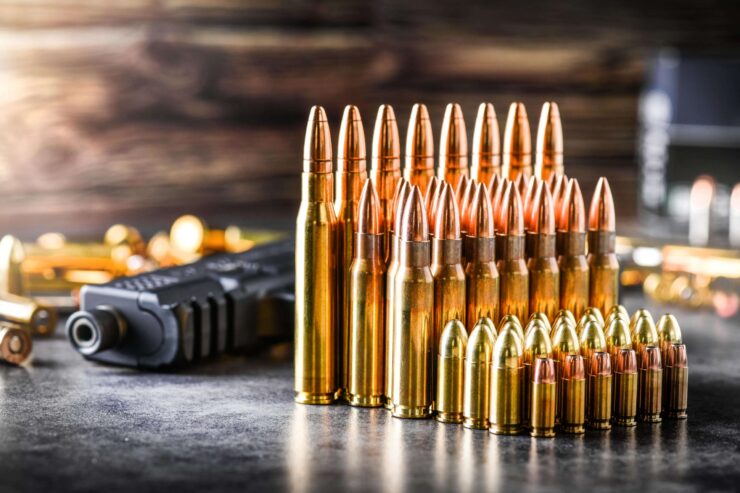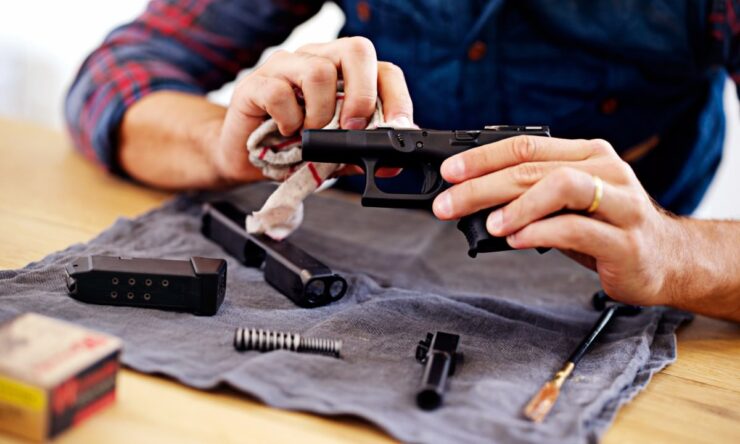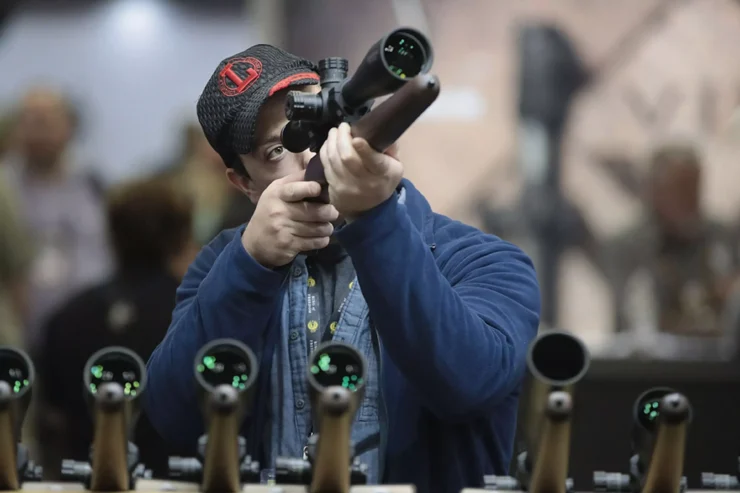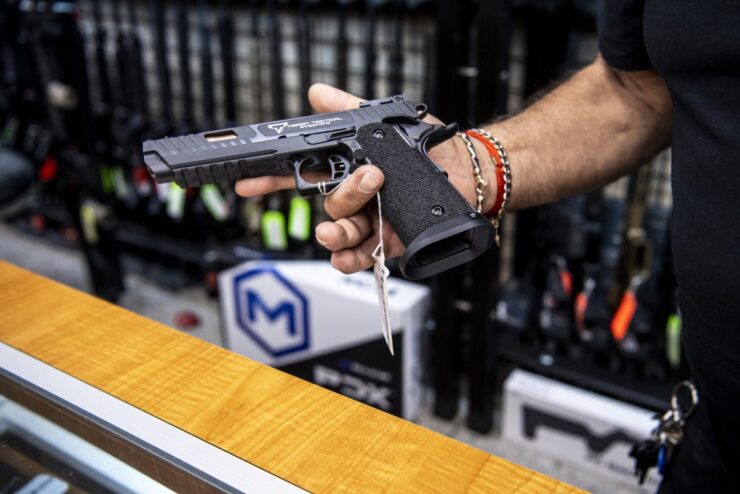In recent years, gun ownership has become a highly debated topic. Regardless of where you stand on the issue, it’s important to recognize the fact that owning a firearm comes with significant responsibilities. As a gun owner, it is your duty to not only use your firearm lawfully but also to store it safely and handle it responsibly. Failing to do so can lead to tragic accidents and potentially deadly consequences.
Fortunately, there are several essential gun safety tips that every homeowner should follow to ensure that their firearms are handled safely and responsibly. By implementing these tips, you can reduce the risk of accidents and ensure that your firearms are only used for their intended purpose.
Store Firearms in a Locked Safe
One of the most important things a responsible gun owner can do to keep firearms safe is to store them in a locked safe. You can visit this site and find out more about the locked safe that will suit your needs. Not only does a safe prevent unauthorized access, but it also protects your guns from theft and damage.
When selecting a safe, look for one made of sturdy materials such as steel and a tamper-proof locking mechanism to prevent forced entry. It’s also important to ensure the safe is fire-resistant and waterproof to protect your firearms in case of a disaster.
Keep in mind that the safe should be located in a secure and hidden location within your home, away from children and potential burglars.
Keep Ammunition Separately

Keeping your ammunition separate from your firearms is another important safety measure. By storing your ammunition in a locked container, preferably a different safe or cabinet than your guns, you prevent anyone from accessing your guns even if they get hold of the ammunition.
Make sure the container is sturdy and tamper-proof to prevent unauthorized access. When storing your ammunition, keep it in a cool, dry place, away from direct sunlight or any heat sources, to prevent deterioration and maintain its quality.
Educate Your Family Members
Educating your family members about gun safety is crucial. It’s not enough to just store your firearms safely; everyone in your household should be aware of the potential dangers of guns and how to handle them responsibly. Children should be taught to stay away from guns and should not touch them without adult supervision.
Adults should be educated about safe gun handling, storage, and maintenance. Encourage them to take gun safety courses and learn the basics of firearm safety. Create an open and honest environment where family members can ask questions and discuss any concerns they have about firearms.
Practice Safe Handling
Practicing safe gun handling is essential to prevent accidents and injuries. Always keep your finger off the trigger until you are ready to fire. Point your gun in a safe direction, preferably towards the ground and away from any people, animals, or objects that could be harmed if the gun goes off accidentally.
Always assume that the gun is loaded, even if you know it isn’t. Avoid horseplay or joking around with firearms, and never point a gun at anyone or anything you don’t intend to shoot.
Regularly Maintain Your Firearms

Maintaining your firearms regularly is essential to ensure they are in good working condition. Regular cleaning, oiling, and inspection will not only prolong the life of your gun but also ensure its safety. Inspect your firearms for any defects or damages before using them.
If you notice anything that needs repair, take your gun to a qualified gunsmith to have it fixed. In addition, keep a record of any maintenance or repairs performed on your firearms, so you can keep track of their condition over time.
Keep Your Firearms out of Sight
Keeping your firearms out of sight when not in use is an important safety measure. Store them in a locked safe or cabinet that is not easily accessible. Do not leave them lying around in plain sight, as it can attract unwanted attention.
Consider installing a hidden safe or storage compartment in your home to keep your firearms secure. Additionally, if you transport your firearms in your vehicle, keep them in a locked case or compartment and avoid leaving them in your car unattended.
Be Prepared for Emergencies
In case of an emergency, you should be prepared to use your firearm safely and effectively. Familiarize yourself with your gun’s features, such as safety mechanisms and how to load and unload it. Practice shooting at a range and learn how to use it in self-defense situations.
Keep your firearm loaded and accessible in a secure location in case of an emergency, but ensure that it is still out of reach of children or unauthorized persons. Remember to always follow the law and use your firearm responsibly.
Follow Local Laws and Regulations

It’s important to follow all local laws and regulations when it comes to gun ownership and use. Familiarize yourself with your state’s laws on firearms and gun safety, and ensure that you are in compliance with any permit requirements or registration processes.
It’s also important to understand any restrictions on where you can carry your firearms and how they must be stored in your home. Ignorance of the law is not an excuse, so stay informed and up-to-date on any changes in local regulations.
Be Mindful of Others
As a responsible gun owner, it’s important to be mindful of others around you. Avoid displaying or talking about your firearms in public or in the presence of individuals who may be uncomfortable with guns. If you are transporting your firearms, be discreet and avoid drawing attention to yourself.
Additionally, if you have neighbors close by, be considerate and ensure that your firearms are not causing any disturbances or safety concerns for those around you.
Seek Professional Assistance

If you are new to gun ownership or have any questions or concerns about gun safety, seek professional assistance. Attend gun safety courses or classes, speak with a qualified gunsmith or firearm dealer, or consult with a legal professional.
These resources can provide valuable guidance and support to help you navigate the responsibilities and potential dangers of owning a firearm.

